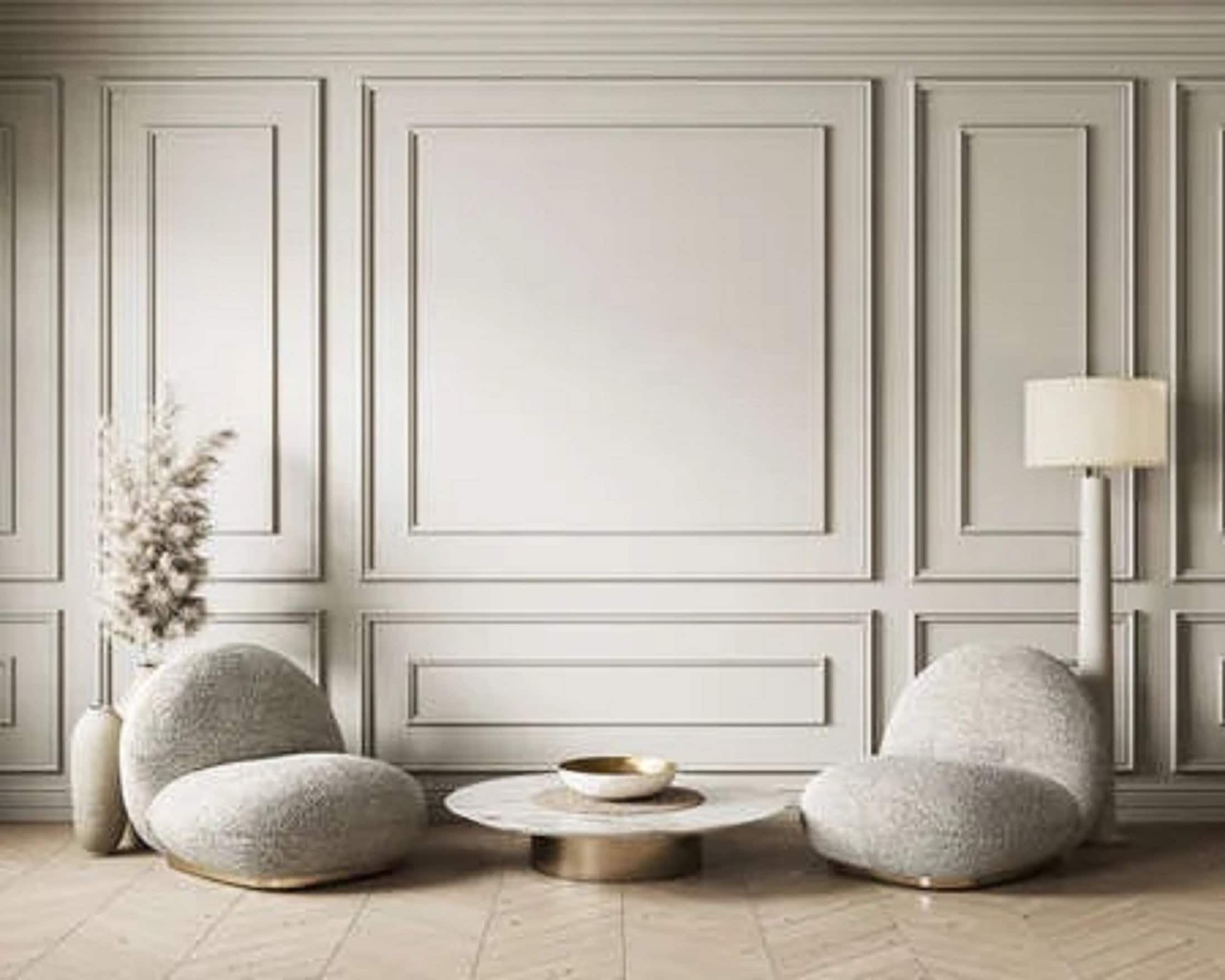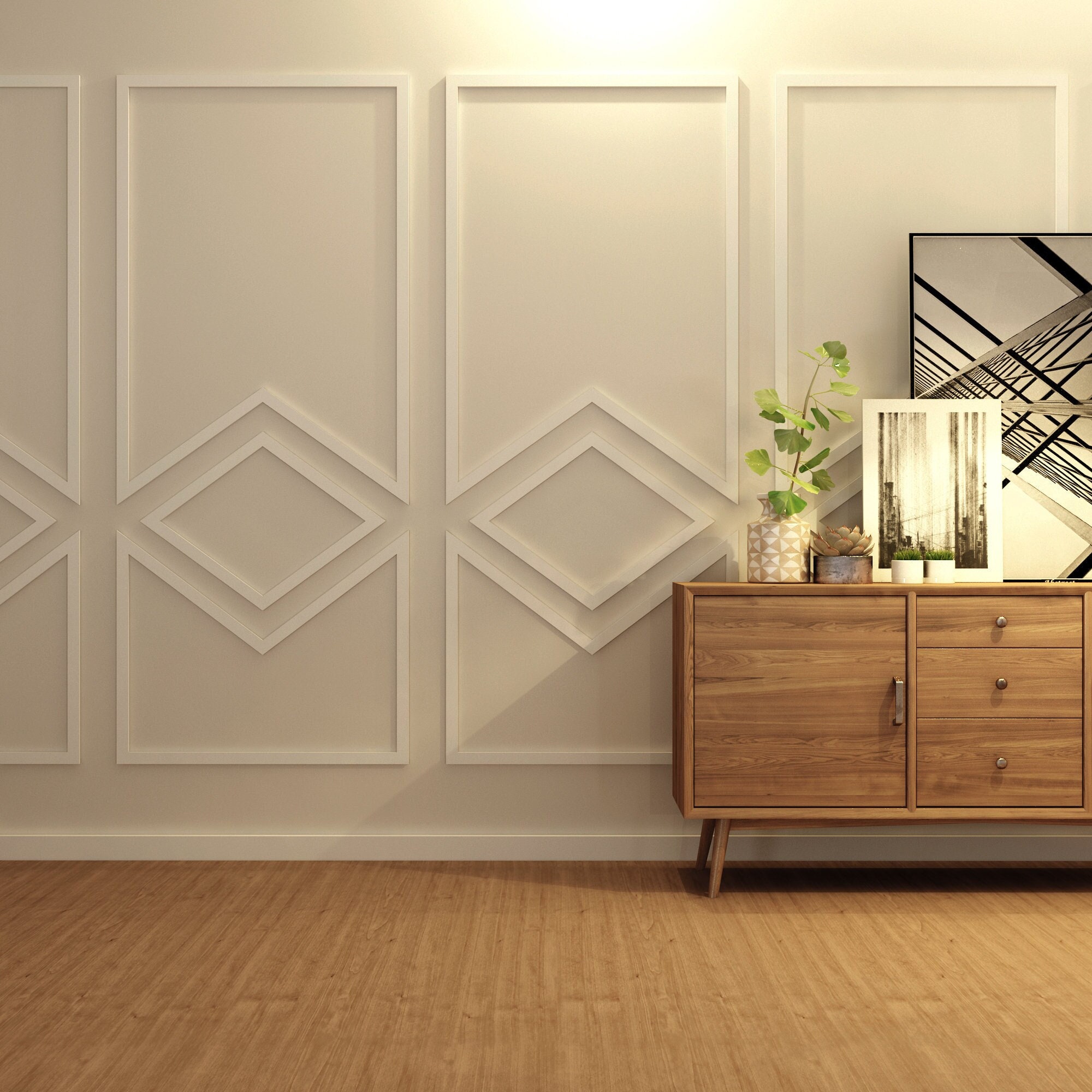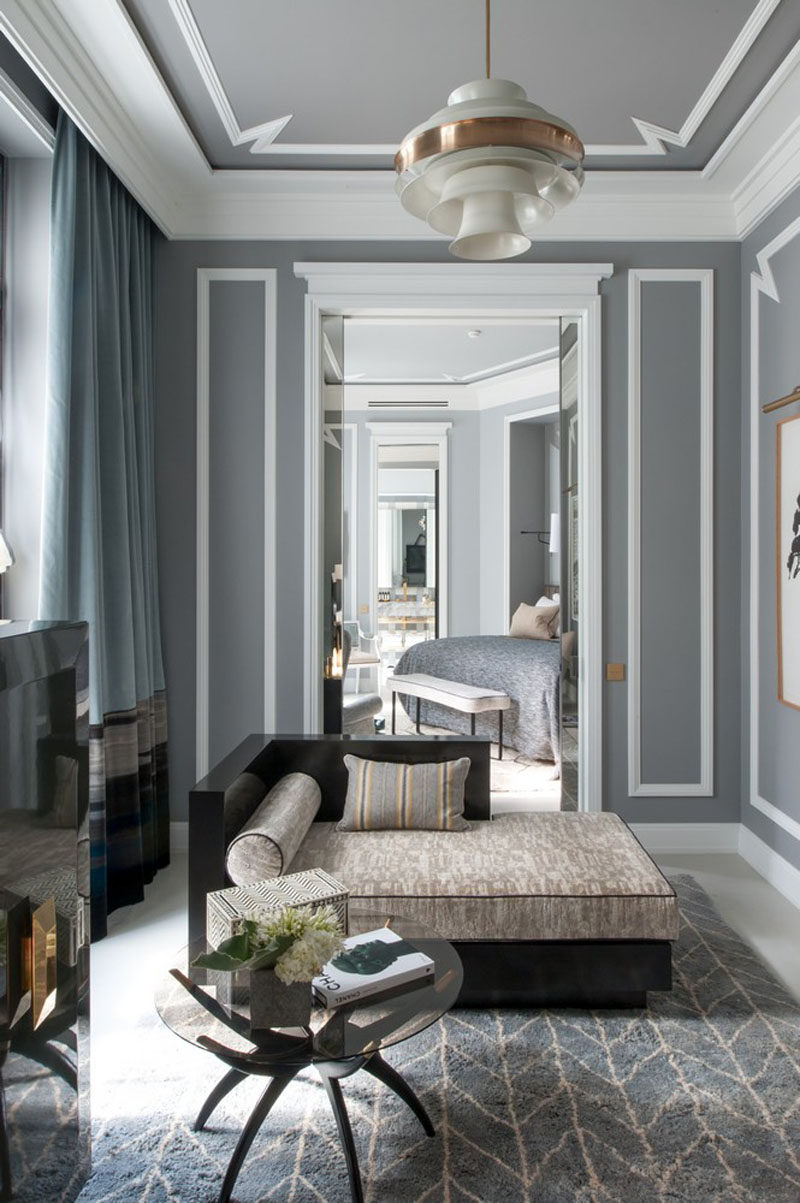Have you ever walked into a room and felt that something was missing? It’s that intangible quality that makes a space feel complete and inviting. For me, wall molding decor was the missing puzzle piece that transformed my home. In this guide, we will delve deep into the world of wall moldings, exploring various types, their benefits, installation tips, and much more. Whether you are a seasoned DIY enthusiast or a beginner, this article is crafted for you!
What is Wall Molding Decor?
Wall molding, often referred to as trim or casing, is a decorative element that outlines or enhances the features of your walls. It can add visual interest and a sense of sophistication to any room. Molding comes in various materials, styles, and designs, fitting myriad interior aesthetic preferences.
Types of Wall Molding
Understanding the different types of wall molding can help you decide which is best for your space. Here are five popular types:
- Crown Molding: This decorative trim is installed at the junction where the walls meet the ceiling, adding height and elegance.
- These are located at the bottom of walls, protecting them from scuff marks and enhancing the room’s aesthetics.
- Chair Rails: A horizontal strip of molding typically placed halfway up the wall to protect it from chairs and to create visual division.
- Picture Rails: Used for hanging pictures without damaging the wall, also adds an attractive linear element.
- Wainscoting: Paneling applied to the lower part of a wall, adding texture and depth.
Comparison Table of Wall Molding Types
| Type | Description | Best For | Style |
|---|---|---|---|
| Crown Molding | Decorative trim at ceiling junction. | Traditional and elegant spaces. | Classic, Modern, Transitional |
| Baseboards | Trim at the bottom of walls. | Any room, protective and aesthetic. | Classic, Minimalist, Rustic |
| Chair Rails | Horizontal strip midway on the wall. | Dining rooms, protective use. | Classic, Traditional |
| Picture Rails | For hanging pictures without wall damage. | Artistic display and aesthetics. | Classic, Vintage |
| Wainscoting | Lower wall paneling. | Adding texture and depth to rooms. | Classic, Cottage, Contemporary |

Why Choose Wall Molding Decor?
There are numerous reasons to consider wall molding decor in your home. Here are some of the remarkable benefits:
- Enhanced Aesthetic: Molding adds character, warmth, and depth, elevating the visual appeal of your space.
- Increased Home Value: Investing in high-quality moldings can improve the overall resale value of your home.
- Improved Protection: Baseboards, for example, shield your walls from damage and wear.
- Versatile Design: Molding complements various decor styles, from modern to traditional.

Personal Experience: My Journey with Wall Molding
When I first decided to invest in wall molding for my home, I was overwhelmed. I didn’t know where to start or what styles would suit my decor. After doing extensive research and consulting with various professionals, I found that crown molding was the perfect choice for my high ceilings, while baseboards provided the finishing touch to my living space.
How to Choose the Right Wall Molding for Your Space
Selecting the right wall molding requires consideration of several factors:

1. Style and Aesthetic
Consider your existing decor style. Are your furnishings modern, rustic, or classic? Choose moldings that harmonize with your overall design theme.
2. Material
Molding comes in different materials, including wood, MDF (medium-density fiberboard), and polyurethane. Each has its pros and cons:

| Material | Pros | Cons |
|---|---|---|
| Wood | Durable, customizable, natural look. | Can be more expensive, susceptible to warping. |
| MDF | Cost-effective, smooth surface for painting. | Less durable, can swell with moisture. |
| Polyurethane | Lightweight, moisture-resistant, easy to install. | Less authentic appearance compared to wood. |
3. Size and Scale
The proportions of your moldings should complement your space. Larger rooms benefit from wider moldings, while smaller spaces may look better with thinner options.

4. Color and Finish
Choose colors that either match or contrast your wall color. White moldings create a classic look, while bold colors can be used for a dramatic effect.
Installation of Wall Molding
Installing wall molding may seem intimidating, but with the right tools and a little patience, you can do it yourself!

Tools Needed
- Miter saw
- Nail gun or hammer
- Stud finder
- Level
- Measuring tape
- Wood glue (optional)
Step-by-Step Installation Guide
- Measure and Mark: Use a measuring tape to determine where the molding will go. Mark these spots on the wall.
- Cut Molding: Using a miter saw, cut your molding at a 45-degree angle for corners.
- Attach Molding: Secure the molding to the wall using a nail gun or hammer and nails. Make sure to hit the studs for better support.
- Fill Gaps: Use caulk to fill in any gaps and seams for a seamless finish.
- Paint or Stain: Once installed, you can paint or stain your moldings to suit your style.

Pros and Cons of Wall Molding Decor
Like any design element, wall moldings come with their own set of advantages and disadvantages:
Pros
- Adds architectural interest
- Protects walls
- Variety of styles and materials available
- Increases home value
Cons
- Can be costly depending on material
- Installation requires skill and patience
- May require regular maintenance and touch-ups
Wall Molding Decor in Different Rooms
Each room in your home can benefit from wall molding decor in unique ways:
Living Room
Crown molding can add elegance, while wainscoting can provide texture.
Dining Room
Chair rails can protect walls from furniture while adding a decorative touch.
Bedroom
Soft crown molding can enhance the cozy atmosphere and elegance of your bedroom.
Kitchen
Consider using moldings to define your cabinets and enhance architectural features.
FAQs about Wall Molding Decor
What materials are best for wall molding?
The best material depends on your budget and preference. Wood offers durability and a classic look, while MDF is cost-effective and easy to work with.
Can I install wall molding myself?
Yes! With the right tools and a bit of patience, DIY installation is feasible for most people.
How do I choose the right style of wall molding?
Consider your existing decor, the size of your space, and the overall aesthetic you wish to achieve.
Conclusion
Wall molding decor can significantly elevate your home’s aesthetic and value. With the right knowledge and tools, you can transform your space into something truly special. Whether you choose to hire a professional or take on the challenge yourself, incorporating wall moldings is a decision you won’t regret. Start your journey today and embrace the beauty that wall molding can bring to your home!